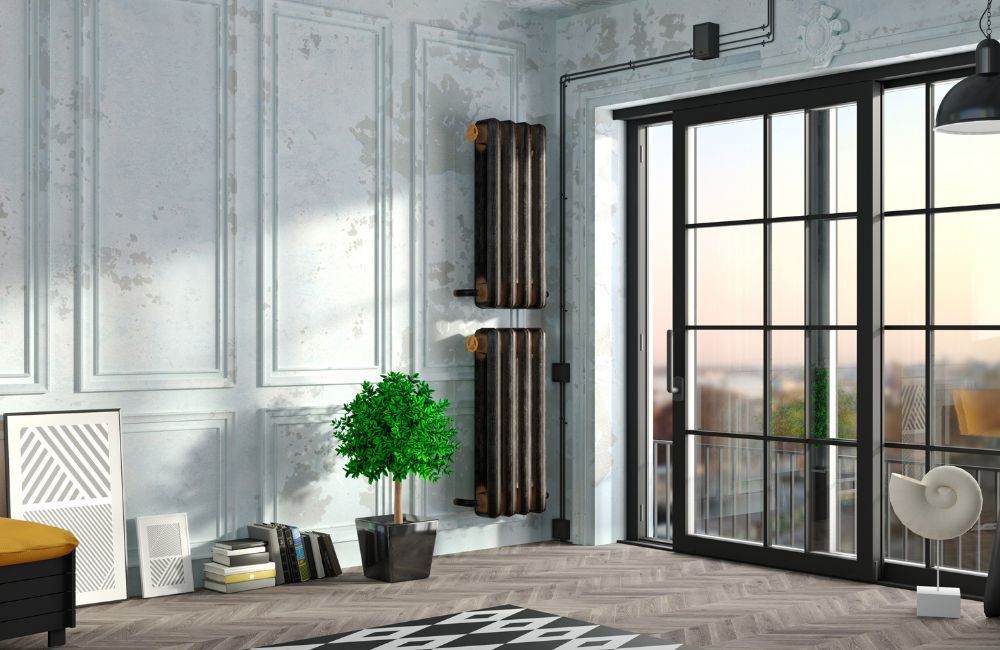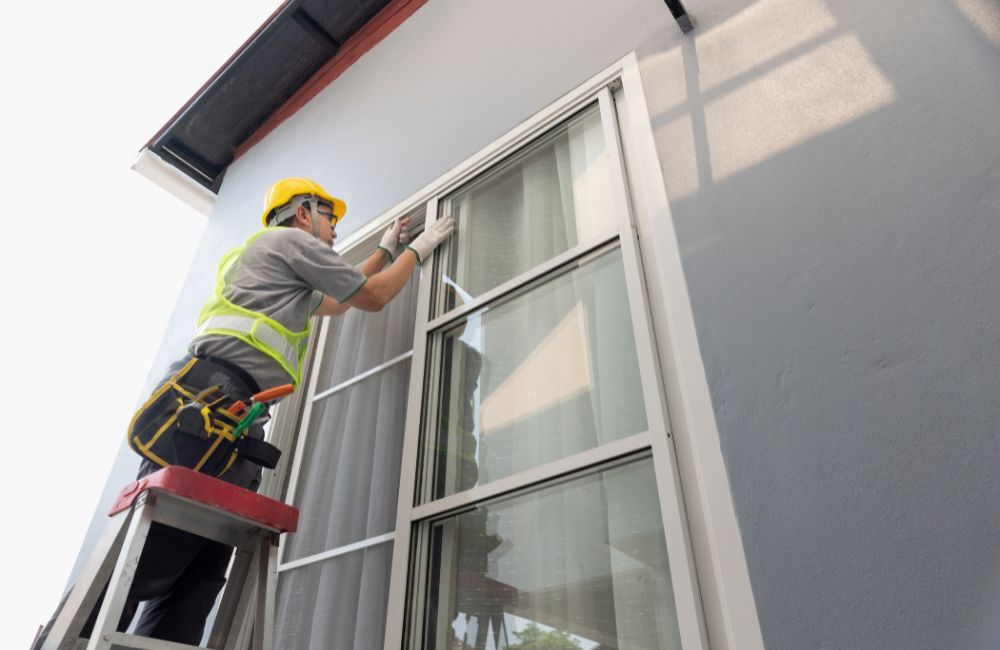
Hurricanes can cause devastating damage to homes in Miramar, FL, making it essential to have robust protective measures in place. Residential hurricane doors are a critical component in safeguarding your home against these powerful storms. These doors undergo various rigorous tests to ensure they offer maximum safety and protection during hurricane events. Understanding these testing methods can help homeowners choose the best doors to defend their homes and loved ones against the fiercest weather conditions.
Table of Contents
Key Takeaways
FLPA vs NOA: What’s the Difference?
How Residential Hurricane Doors Undergo Rigorous Safety Testing
Frequently Asked Questions
Secure Your Home in Miramar, FL, with Prestige Windows and Doors
Key Takeaways
|
FLPA vs NOA: What’s the Difference?
When choosing residential hurricane doors, understanding the different approval systems can be crucial. The Florida Product Approval (FLPA) and the Notice of Acceptance (NOA) by Miami-Dade County are two of the most recognized standards in the industry. Knowing the differences between these two can help homeowners make informed decisions about the safety and reliability of their hurricane doors.
FLPA (Florida Product Approval)
The Florida Product Approval system ensures that building products meet specific standards set by the state. Hurricane impact doors that pass FLPA testing have undergone rigorous assessments to prove their ability to withstand hurricane conditions. This approval is critical for homeowners, as it guarantees the doors can handle the severe weather typical of the region.
NOA (Notice of Acceptance)
The Notice of Acceptance (NOA) is a certification given by Miami-Dade County, known for having some of the most stringent testing requirements. NOA-approved hurricane impact doors have demonstrated exceptional resilience against impact and pressure. Choosing NOA-certified doors means opting for the highest level of protection available.
Key Differences
While both FLPA and NOA ensure high standards, NOA generally has more rigorous testing procedures. FLPA focuses on compliance with state-wide standards, while NOA includes additional tests to simulate the harshest hurricane conditions. Understanding these distinctions can help homeowners select the most reliable residential hurricane doors for their needs.
Residential Hurricane Doors Tested for Maximum Safety
How Residential Hurricane Doors Undergo Rigorous Safety Testing
With the 2024 Atlantic hurricane season spanning from June 1 to November 30, homeowners face the challenge of ensuring their properties can withstand severe weather. One of the most crucial elements in this defense strategy is the installation of high-quality hurricane doors. To guarantee their durability and stability during extreme weather, manufacturers conduct a series of rigorous tests designed to simulate the harsh conditions that hurricane doors must endure. By undergoing these stringent evaluations, hurricane doors are verified to meet the highest safety standards, giving homeowners peace of mind during hurricane season.
1. Impact Resistance Testing
Impact resistance testing is crucial in evaluating the durability of a residential hurricane door. This test ensures that the doors can withstand the impact of flying debris during a hurricane. There are two tests that measures the resistance and durability of hurricane doors.
Simulating Debris Impact
Large missile impact tests involve firing heavy objects, like lumber or steel pipes, at the doors to simulate debris impact. This predicts the timing and impact of debris hitting a door or window during a storm. Hurricane impact doors must withstand these impacts without allowing penetration to pass this test.
Small Missile Impact Test
The small missile impact test involves shooting smaller objects, like gravel or roof tiles, at the doors. These tests ensure that the doors can resist damage from less significant, but more frequent, debris impacts.
2. Pressure Cycling Testing
Pressure cycling tests assess how well residential hurricane doors can withstand the fluctuating pressures of a hurricane. This testing is essential for ensuring doors maintain their structural integrity under continuous stress. Homeowners benefit from doors that have passed these rigorous tests, as they offer reliable protection during prolonged storms.
Positive and Negative Pressure Cycling
During this test, doors are subjected to repeated cycles of high and low pressure to mimic the effects of a hurricane’s changing winds. The goal is to ensure that a residential hurricane door does not fail under these extreme conditions. This test is critical because it confirms that doors can handle the intense pressure changes typical of hurricanes.
Simulated Wind Loads
Simulated wind load tests involve using high-powered fans or other methods to create wind forces that mimic those of a hurricane. Residential hurricane doors must endure these simulated winds without significant damage or failure. This testing is particularly important in areas where hurricanes bring sustained high winds that can last for hours.
3. Water Infiltration Testing
Water infiltration testing determines how well a residential hurricane door can prevent water from entering a home during a storm. Keeping water out is crucial for avoiding flood damage and maintaining structural integrity. Doors that pass these tests are essential for ensuring homes stay dry and safe during hurricanes.
Water Resistance Under Pressure
This test involves spraying doors with high-pressure water jets to simulate heavy rain driven by hurricane winds. Residential hurricane doors must remain watertight under these conditions to pass the test. For homeowners in Miramar, FL, choosing doors that have undergone this testing means added peace of mind knowing their homes are protected from water damage during storms.
4. Air Infiltration Testing
Air infiltration testing ensures that residential hurricane doors can maintain airtight seals during a hurricane. This is important to prevent wind-driven rain and debris from entering homes.
Ensuring Airtight Seals
The air infiltration test involves measuring how much air can pass through the doors when subjected to high pressure. A residential hurricane door must limit air infiltration to pass this test. This ensures that doors provide an effective barrier against the elements, maintaining the home’s interior environment even during severe storms.
5. Structural Load Testing
Structural load testing evaluates the overall strength and durability of residential hurricane doors. This test ensures that doors can support the weight and pressure experienced during a hurricane without failing.
Testing for Structural Integrity
In this test, doors are subjected to extreme loads to assess their structural integrity. Residential hurricane doors must withstand these loads without significant deformation or failure. For residents of Miramar, FL, this test confirms that their doors will remain strong and protective throughout the most intense hurricane conditions.
Frequently Asked Questions
How are hurricane doors rated?
Hurricane doors are rated based on their performance in a series of rigorous tests, including impact resistance, pressure cycling, water infiltration, and structural load. These tests simulate the extreme conditions doors must endure during a hurricane. Ratings are provided by recognized organizations such as the Florida Product Approval (FLPA) and Miami-Dade County’s Notice of Acceptance (NOA). These certifications indicate that the doors meet or exceed stringent safety and durability standards, ensuring maximum protection for your home.
Can hurricane doors improve my home insurance rates?
Installing certified a residential hurricane door can lead to lower home insurance premiums. Insurance companies often offer discounts for homes with enhanced protective measures, as they reduce the risk of damage during hurricanes. By minimizing potential storm-related damages, hurricane doors help insurers save on claims, which translates to reduced premiums for homeowners. This can result in significant long-term savings on your insurance policy while providing peace of mind.
How often should hurricane doors be inspected?
It is advisable to inspect hurricane doors at least once a year, particularly before the hurricane season begins. Regular inspections help identify any potential issues, such as wear and tear or damage, that could compromise the door’s effectiveness. Addressing these issues promptly through maintenance and repairs ensures that the doors remain in optimal condition to protect your home. Annual inspections are crucial for maintaining the doors’ integrity and performance during severe weather.
What materials are commonly used in hurricane doors?
Hurricane doors are typically constructed from durable materials such as reinforced steel, aluminum, and impact-resistant glass. These materials provide the necessary strength and durability to withstand the extreme conditions of a hurricane, including high winds and flying debris. The use of high-quality materials ensures that the doors offer long-lasting protection for your home. Investing in sturdy materials enhances the overall safety and resilience of your hurricane doors.
Can I install hurricane doors myself, or should I hire a professional?
While some homeowners may have the necessary skills for installation, it is generally recommended to hire a professional. Professional installation ensures that the doors are installed correctly and in compliance with safety standards, providing the highest level of protection. Proper installation is critical to the doors’ performance during a hurricane, as any errors could compromise their effectiveness. Hiring a professional guarantees that your hurricane doors will offer reliable protection when you need it most.

Secure Your Home in Miramar, FL, with Prestige Windows and Doors
Ensure your home is fully protected with the rigorously tested residential hurricane doors from Prestige Windows and Doors. Our doors have undergone extensive impact, pressure, water infiltration, and structural load testing to guarantee maximum safety. Contact Prestige Windows and Doors today to learn more about our superior hurricane doors and how we can help safeguard your home against the fiercest storms.

 Residential hurricane doors undergo rigorous tests to ensure maximum safety and protection.
Residential hurricane doors undergo rigorous tests to ensure maximum safety and protection.